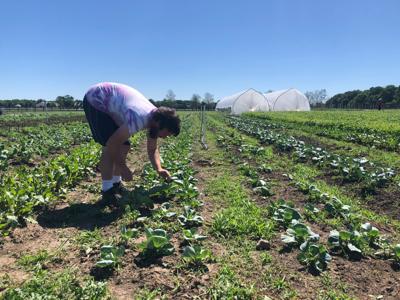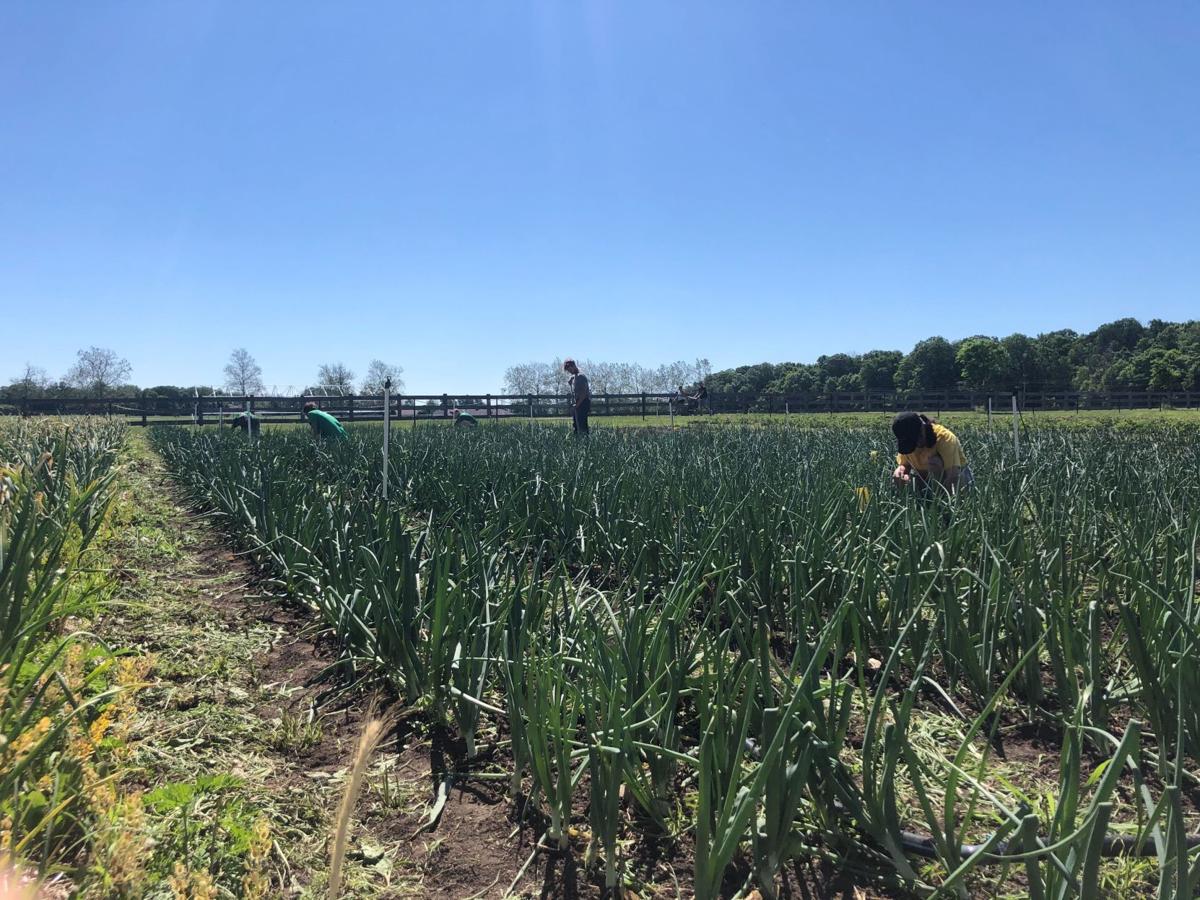- BY JORDAN SMITH Summer Reporter
- Jun 18, 2020

“Cabbage moth,” he says while imploring the moth to land so he can kill it. “They lay eggs, and then the cabbage worm hatches, and then they’ll eat on your kale, they’ll eat on your cabbage.”
Adair hovers, forearm tensed. Another swing. Direct hit.
The spinach, kale and other leafy greens Adair, the manager of the Purdue Student Farm on Cherry Lane, protects so fervently eventually make their way to local food banks.
Food Finders CEO Katy Bunder estimates she receives about 200 pounds of leafy greens from the student farm each week. Fifteen to 20 half-pound bundles of kale are sent to ACE Campus Food Pantry, Adair says.
“When COVID initially hit, part of the issue was they stopped getting donations of fresh produce because people were raiding the stores, effectively, and buying everything out,” he said Thursday. “We were able to donate a lot of fresh produce when they weren’t receiving a lot.”
The student farm has donated more than 3,000 bundles of produce since March 23, Adair said, one-third of that volume coming in the last month. Each bundle supplies an individual or family with several servings of leafy greens.
The two-and-a-quarter acres of growing land have been hugely productive this year, he says, contrary to expectations that the coronavirus might derail plans for the spring and summer. But the farm is losing money because of a dearth of sales to campus dining halls, something it’s accustomed to during the summer months.
Adair expected the upcoming season, the student farm’s fourth, to be a turning point. Crop rotations have been optimized; high tunnels are in place to protect crops from adverse weather, extending growing seasons.
“And then COVID hit,” he said, echoing the downtrodden sentiment of countless workers nationwide.
But Adair and other farm coordinators, after discussions to potentially cancel plans for the summer, decided to continue as normal. He’s hired eight students who work 20-hour weeks, digging rows for crops to be planted, ridding the soil of weeds and trellising — tying ropes to keep plants upright and improve growth.
The farm depends on dining halls to buy its output, Adair says as he walks by lines of cherry tomatoes and sweet peppers that will later be loaded into green bins and trucked to campus salad bars.
As plans to de-densify dining announced by Purdue have made clear that takeout options will be the default this fall, Adair has questioned how campus chefs will adapt. One greenhouse worth of hot peppers is usually sold to Hillenbrand for its hot wings eating challenge, something unlikely to happen this year.
He’s heard prepackaged salads and sandwiches will become the norm, a good sign for his farm.
“They do have quite a bit of leeway within their own dining hall to buy produce and where to buy it from,” he says. “If we have it available, and they can use it, I’m pretty confident they will.”
With athletes returning to campuses in phases, football players last week and basketball players this week, Adair says the farm will sell food to Purdue athletics, albeit a small volume. He doesn’t plan to make any major sales until the beginning of the fall semester.
The farm will host labs in the fall, Adair says, something he remembers as an important educational function during his time at Purdue studying botany and plant pathology. The farm’s workers also learn while earning money.

Grace Moore kneeled down in a field of onions with a few colleagues on Thursday morning, the mist from a nearby sprinkler lingering in the air, providing relief as the sun beat down. An incoming junior, she studies sustainable food and farming systems, and she had been weeding all morning.
“(Onions) don’t compete well with weeds,” she said. “There’s stuff that gets really close to the onions that we’ve been hand-weeding, because if you get to close with the hoe, you just chop the onions down.”
Moore worked at the urban microfarm on campus during the semester but was moved to the student farm when campus activities were canceled and few dining courts were in need of supply.
She enjoys most of the work, she says, and sustains through “backbreaking” tasks with the knowledge the vegetables she grows will end up in families’ trunks at Linnwood Elementary School, Food Finders’ drive-thru location.
“It feels good,” she said, “to be giving people fresh produce at a time they might not have access to it.”
Original Story: https://www.purdueexponent.org/campus/article_10491090-acbd-11ea-94f0-a3ea9b312988.html